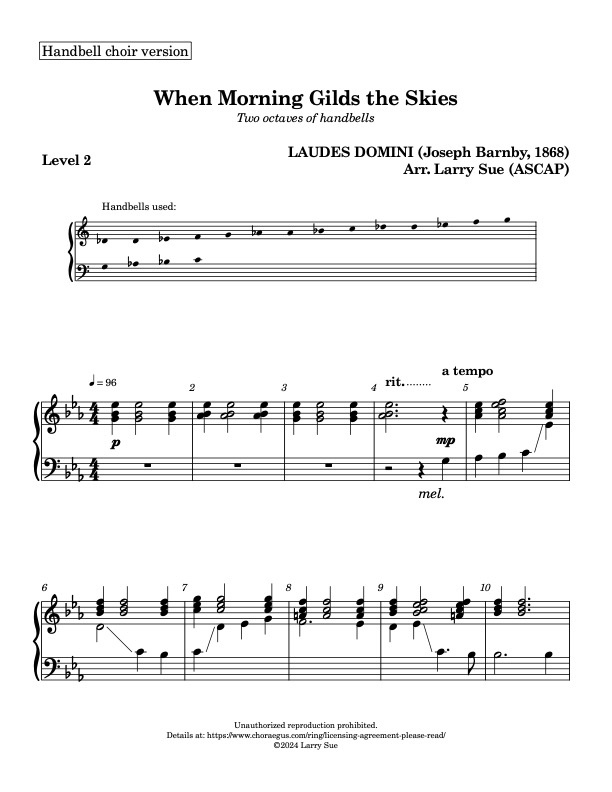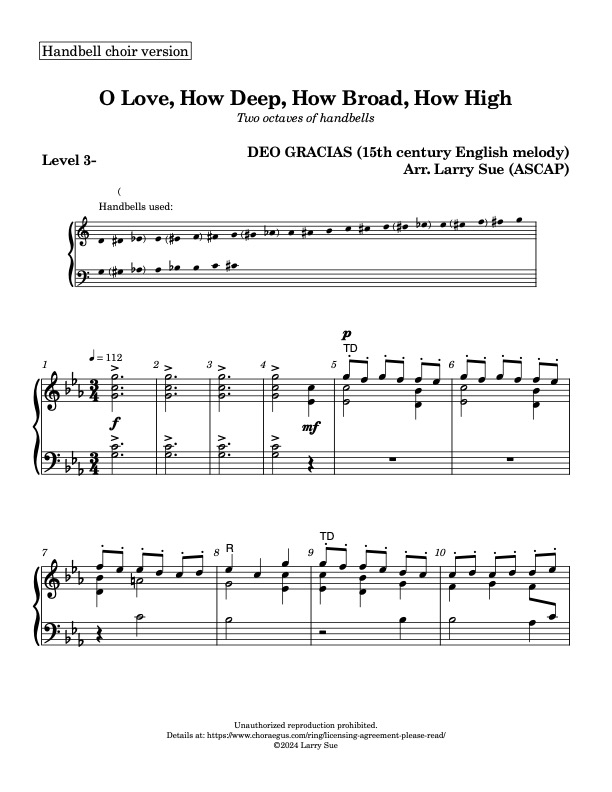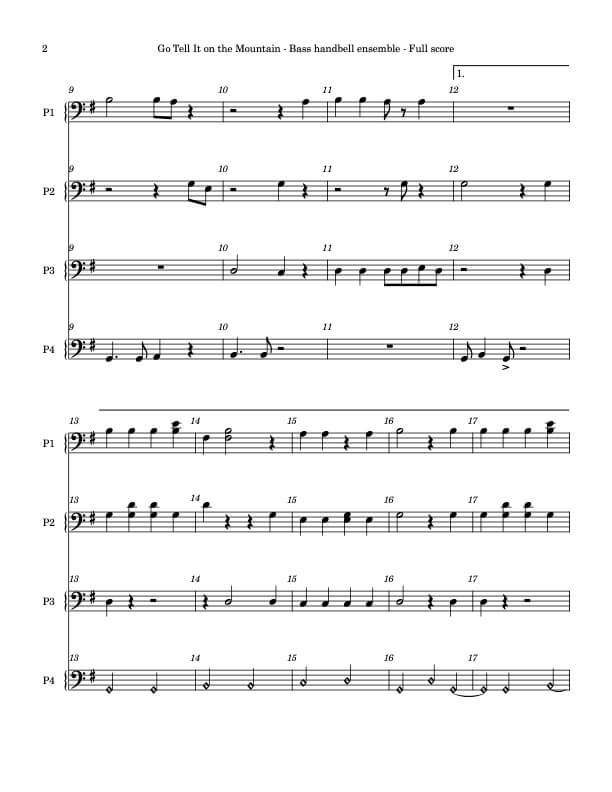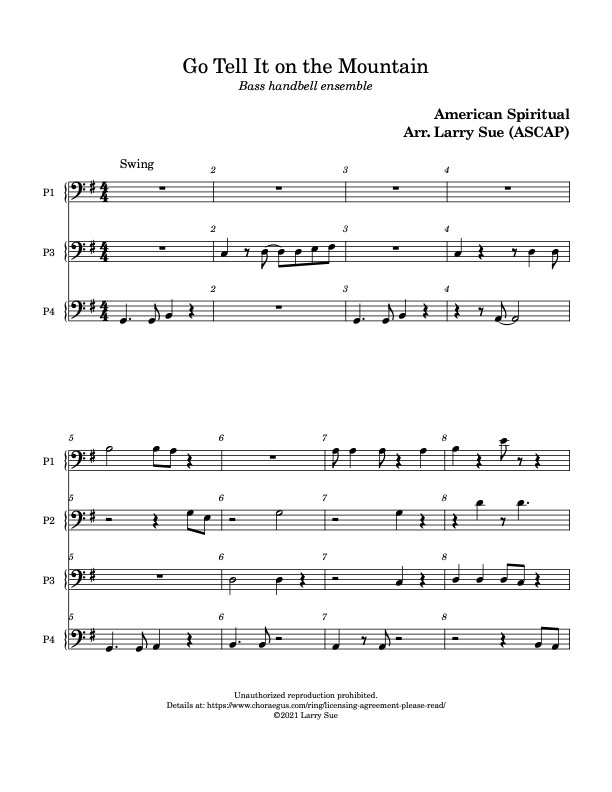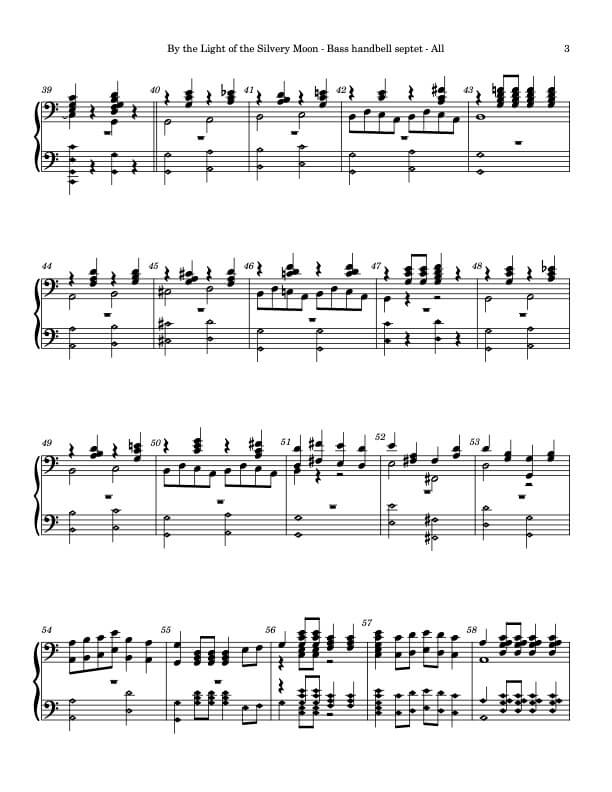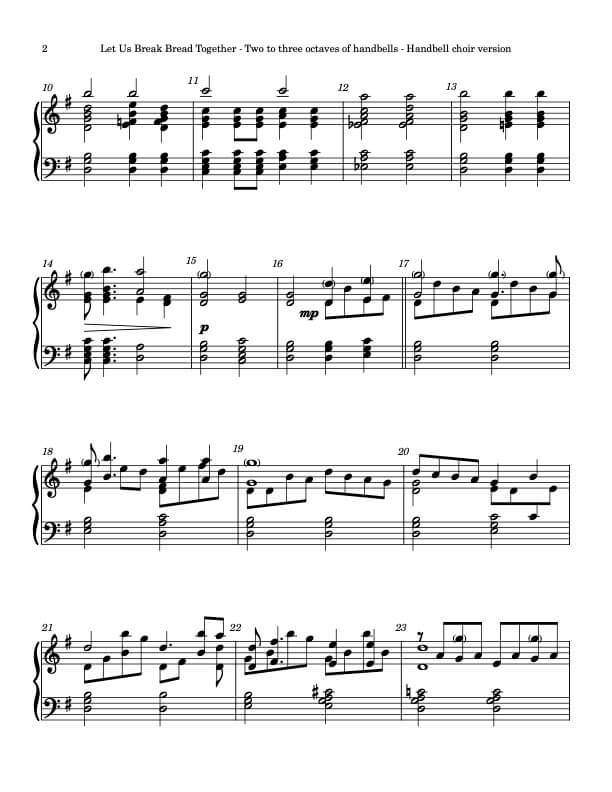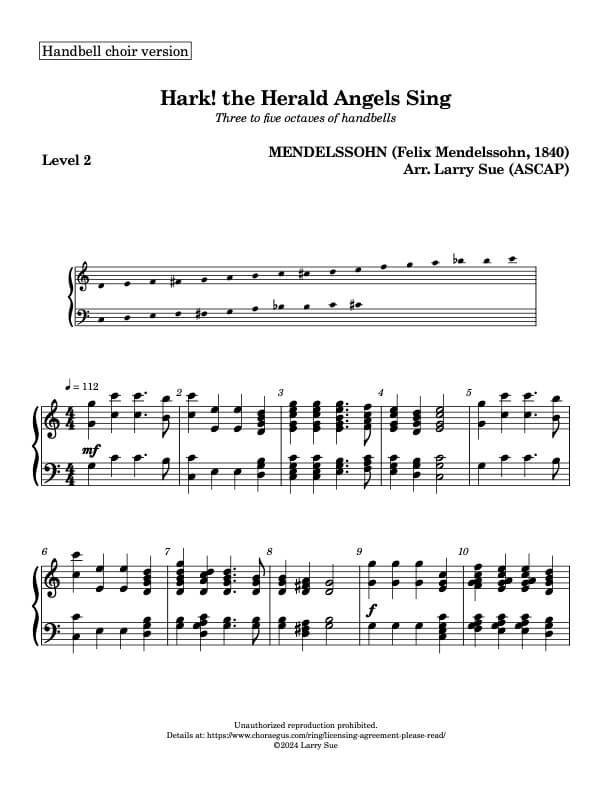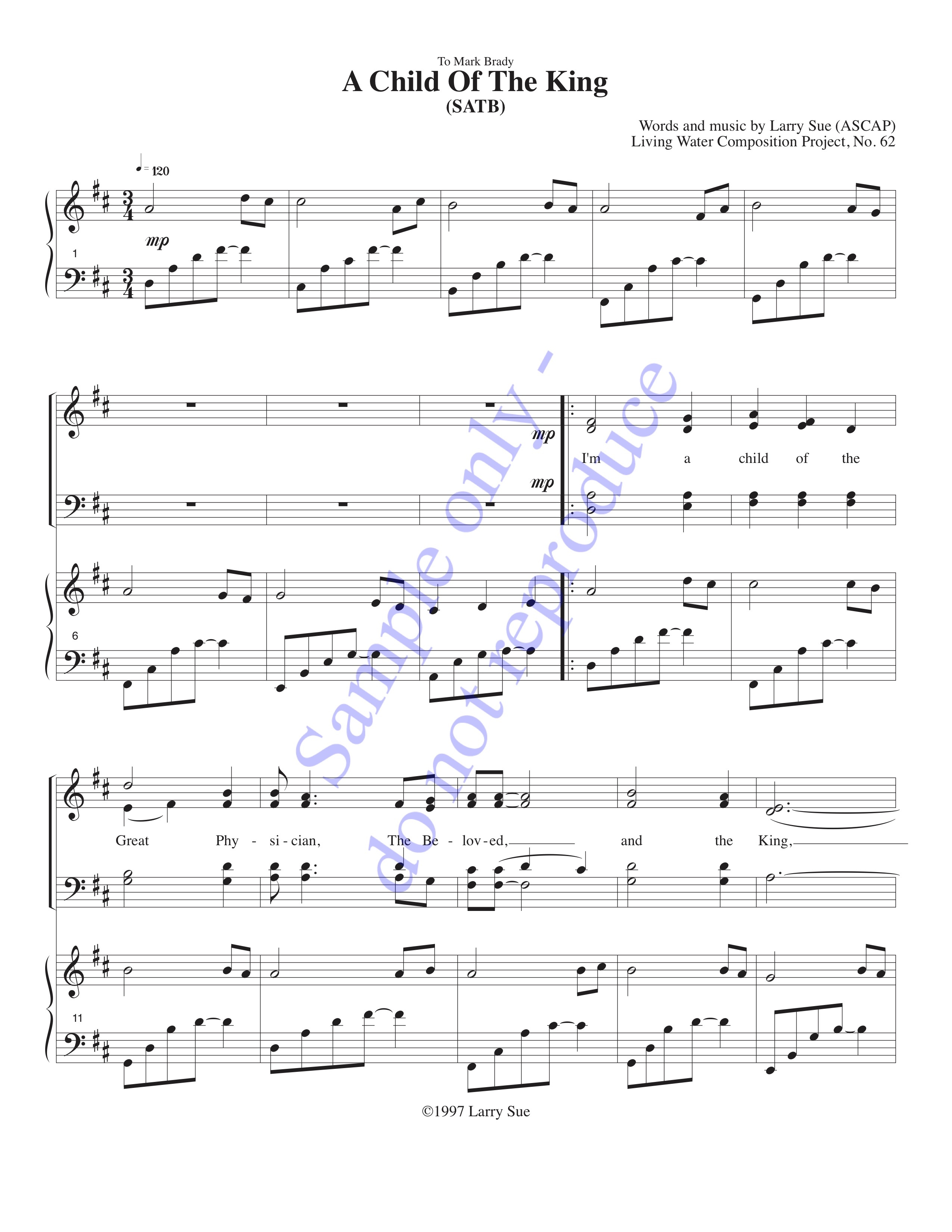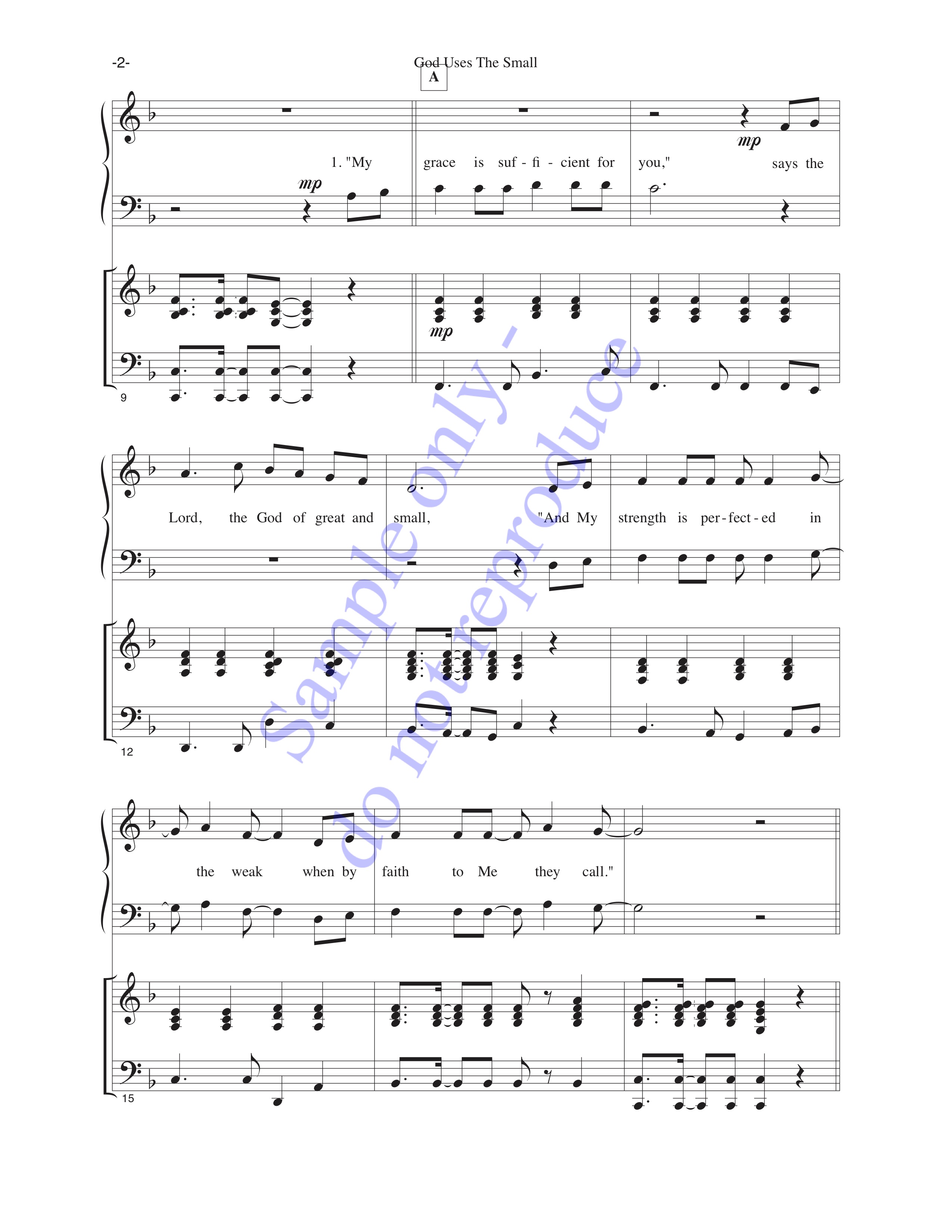I wrote several dozen choral pieces for Living Water, my choir at Valley Church of Cupertino. It occurred to me that some of those songs might be reworked into handbell pieces. Home at Last is the first one to be arranged. Today we have a new video of the handbell arrangement to share with you! …
Tag: handbells
Handbells were invented in 17-century England as a practice tool for tower bell ringers. They could then rehearse in warmer and cheerier places than belfries - to wit, the local pubs. At some point, someone noticed that it was possible to play tunes (rather than just "changes") on handbells, and so "tune ringing" began. The music available from Choraegus followed the tune ringing tradition as practiced and performed in the modern era,
Apr 11
Forever (Handbells, 5-8 octaves, Level 5) – new video!
Forever was commissioned in 2012 by Dee Allaway and her family in memory of her father Walter Dennis Oliver. It’s a grand tribute to a man who brought music to his family as well as others around him. At least five octaves of handbells are necessary to play Forever. You’ll find that there are abundant …
I Surrender All (SURRENDER) – Sixteen handbells
Judson Van DeVenter, the writer of I Surrender All, shared a heartfelt message that Christians have expressed time and time again for centuries. All to Jesus I surrender, All to Him I freely give; I will ever love and trust Him, In His presence daily live. I surrender all, I surrender all; All to Thee, …
Apr 07
I Surrender All (SURRENDER) – for sixteen handbells
Judson Van DeVenter, the writer of this hymn, shared a heartfelt message that Christians have expressed time and time again for centuries. Our arrangement for sixteen handbells is available in C5-Ab6 and G4-Eb6 versions; the latter can be played using a two-octave set. All to Jesus I surrender, All to Him I freely give; I …
Apr 04
New video for A Celebration of Our Life – for Handbells, 5 octaves, and handchimes, 3 octaves, Level 4
A California couple commissioned A Celebration of Our Life for their 30th wedding anniversary, and had their church’s handbell choir premiere it when they renewed their vows. We’re pleased to share our new video of this piece, and hope that you’ll have something to celebrate when you play it! Purchasing the handbell choir version of …
Mar 28
Go to Dark Gethsemane (REDHEAD No. 76) – for six accompanied handbells
The hymn tune REDHEAD NO. 76 seems unusual; its background is that the composer, Richard Redhead, published a book of hymns in the nineteenth century. Learning this made it all clear for me! Our arrangement for six accompanied handbells is straightforward to play, and will contribute to your services during Holy Week. Go to dark …
Go to Dark Gethsemane (REDHEAD NO. 76) – Six handbells and piano
Richard Redhead was a vocalist and an organist in Sussex in the nineteenth century. He also spent a career building the next generation of church musicians. In the nineteenth century, he published a book of hymns, and the tune name of this arrangement includes his surname. Go to dark Gethsemane, / You who feel the …
Let Us Break Bread Together (BREAK BREAD TOGETHER) (Handbells, 2 to 3 octaves, Level 2)
The spiritual Let Us Break Bread Together has simple, yet profound words. It’s a communion song that puts absolute and everlasting reliance on the mercy and grace of God. Our setting for two to three octaves of handbells will bring a peaceful touch to your service or music presentation. Let us break bread together on …
Mar 24
Let Us Break Bread Together (BREAK BREAD TOGETHER) (Handbells, 2 to 3 octaves, Level 2)
The spiritual Let Us Break Bread Together has simple, yet profound words. It’s a communion song that puts absolute and everlasting reliance on the mercy and grace of God. Our setting for two to three octaves of handbells will bring a peaceful touch to your service or music presentation. Let us break bread together on …
The Strife is O’er (VICTORY) – Six handbells and piano
The hymn tune VICTORY by Palestrina dates back to the seventeenth century. About a century later, Francis Pott translated the Latin text from the Symphonia Sirenum to English, giving us the hymn The Strife is O’er, the Battle Done. The strife is o’er, the battle done; the victory of life is won; The song of …


